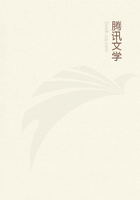
第14章 STATE SOVEREIGNTY(1)
I now propose to occupy you with a group of questions arising out of asubject of much interest and magnitude -the Sovereignty of states overland and waterI will first quote a definition of Sovereignty which wouldfairlyI thinksatisfy the jurists of the present dayIt is taken froman excellent book by the late MrMontague Bernardof which the title is,'The Neutrality of Great Britain during the American Civil War.The definitionis primarily a definition of a Sovereign State'By a Sovereign State,saysMrBernard'we mean a Community or number of persons permanently organisedunder a Sovereign Government of their ownand by a Sovereign Governmentwe mean a Governmenthowever constitutedwhich exercises the power of makingand enforcing law within a Communityand is not itself subject to any superiorGovernmentThese two factorsthe one positivethe other negativetheexercise of power and the absence of superior controlcompose the notionof Sovereignty and are essential to it.'
It is necessary to observe that the conception of Sovereignty went throughseveral changes before it became capable of this descriptionThe view ofSovereignty taken by the earliest international jurists in the sixteenthand seventeenth centuries appears tome to be taken from Roman LawIt isat bottom dominium dominionownershipWe should not be far wrong in sayingthat these writers regard the civilised world as a space of soil dividedbetween a number of Roman proprietorsmuch of their language is taken directlyfrom Roman Lawandas usualit is taken particularly from those rulesof the Roman system which the Romans themselves believed to be identicalwith the rules of the Law of NatureMany fundamental principles are explainedby this viewThus all Statesin International Laware regarded as equal.
As a writer of the last century saidRussia is regarded as is Genevaandin the same way so would a set of Roman owners be regarded as equal beforethe lawAgainInternational Law pays regard to Sovereigns onlyit doesnot regard any other part of the community any more than a Roman tribunalwould regard the slaves and freedmen of a Roman estateI think too thatthese juristson the wholeregard the Sovereign as an individual manItis true that so many of them belonged to the few republics then existing,and specially to the United Provinces of the Netherlandsthat they wereof course aware of the necessity of occasionally contemplating the Sovereignas a corporationbut on the whole the view which is at the basis of theirconception is that the Sovereign is an individualand sovereigns are regardedby these lawyers as absolute and not merely paramount owners of the stateswhich they governThey do not foolbelow the existing Prince or Ruler,who had been originally a man exercising despotic powerFurtherSovereigntyis at this date always associated with a definite portion of the earth'ssurface.
But Sovereigntyor what corresponded in ancient time most nearly to it,was not primitively associated with all these ideasthey took the placeof other ideas of older dateThus Sovereignty was not always territorial;it was not always associated with a definite portion of the earth's surface.
I have pointed outin the work from which I have several times quotedthatthe older ideas are reflected in the titles of the earliest Monarchs in WesternEuropeThese were Rex AnglorumRex FrancorumRev Scotorum -King of theEnglishKing of the FranksKing of the ScotsAnd one of the most patheticfigures in history is still always known to us as the 'Queen of Scots.Evidentlythe fundamental conception was that the territory belonged to the Tribe,and that the Sovereign was Sovereign of the TribeThe fact is that the feudalisationof Europe had to be completed before it was possible that Sovereignty couldbe associated with a definite portion of soilThe investigation of the processwhich we call feudalisation does not belong to this branch of HistoricalJurisprudencebut there is no doubt that in the long run Sovereignty camealways to be associated with the last stage of this processThe lawyerson the whole regard Sovereignty as the Sovereignty exercised by individuals,and the result was extremely important to International Lawfor the assumedindividuality of sovereigns enabled its founders to regard states as moralbeings bound by moral rulesIf the units of the International system hadcontinued to be what they apparently were at firsttribes or collectionsof menit is doubtful whether that system could have been constructedandat all eventswhether it could have taken its actual present form.